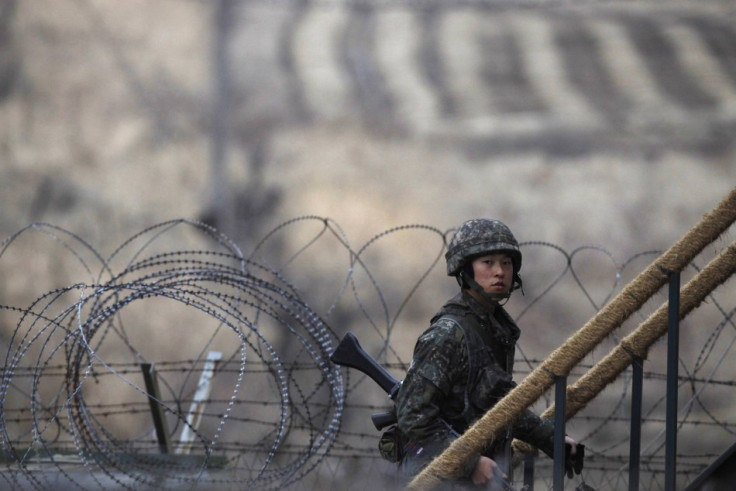China Strengthening Transport Links with North Korea to Boost Trade
Dandong accounts for 80 percent of North Korea-China trade

China is reportedly strengthening its transport links in the North Korean border region in an apparent bid to boost trade ties with Pyongyang amid the UN-backed financial clampdown on the defiant nation.
Beijing will create a bullet train network between Dandong and Hunchun, the regions close to the North Korean border. The upcoming project is expected to reduce the travel time from four hours to a mere one hour.
According to a local Shenyang report quoted by the Seoul-based Chosunilbo newspaper, China will complete the proposed network between Shenyang and Dandong by 2015.
Dandong, which is marked by the river Yalu or Apnok, accounts for nearly 80 percent of the trade between the two countries.
China remains a strong ally of Pyongyang despite widespread international outrage over its nuclear programme. However, Beijing backed the latest round of economic sanctions, which have tightened the screws on North Korean individuals and firms.
Apart from the proposed high-speed train project, the ongoing rail network connecting Jilin and Hunchun, the gateway to a key Special Economic Zone in North Korea, will also be completed by the end of 2013.
The construction of the rail network began in 2010.
Reports suggest that China is also planning to build five more bridges to North Korea apart from the 11 existing ones.
The bridge, which will connect Sinuiju in North Korea and Dandong in China across the Yalu river, is also to become operational by the end of next year.
In the border region, there has been a proliferation of illegal North Korean labourers working in small Chinese companies. Beijing often turns a blind eye to the illegal labourers.
"North Korean workers are divided into those who are officially dispatched workers, relative visitors, and illegal entrants. The percentage of illegal entrants is the highest among the three types," said China's Economic Observer last year.
The North Korea-China border is relatively unguarded compared to its other borders with South Korea and Russia.
According to reports, China is largely interested in the trade benefits in the region. But there is also speculation that the links in the border region will be vital for the Chinese military in case of any emergency.
© Copyright IBTimes 2025. All rights reserved.






















